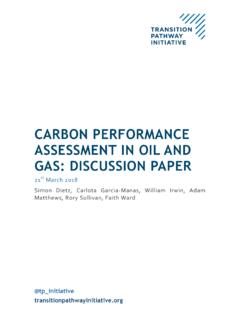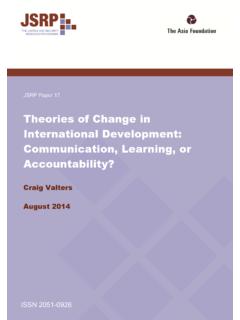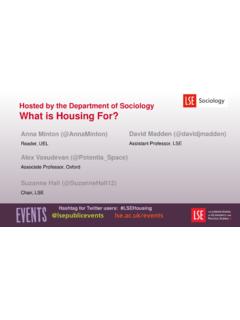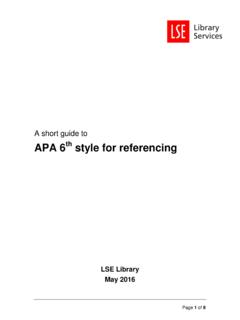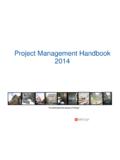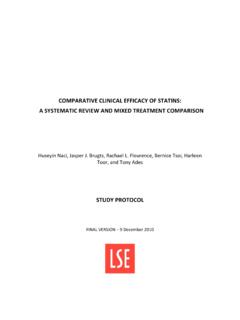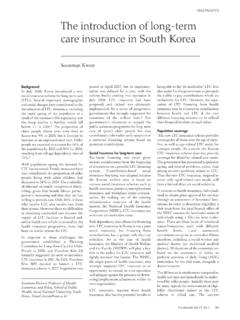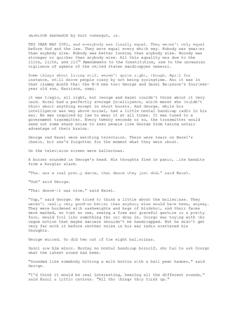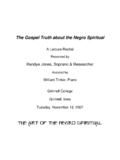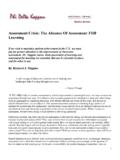Transcription of Playing to the Crowd: The Role of Music and …
1 Playing to the Crowd: The Role of Musicand musicians in political ParticipationJohn Street, Seth Hague and Heather SavignyMusic and politics have long been connected. One of the most recent examples was Live 8 in July2005, when a series of concerts was used to put pressure on G8 leaders to change their policy onthird world debt. While the connection is often observed, it is rarely analysed in any detail. Thisarticle is an attempt to provide some of that detail. It begins by asking whether participating inmusic can also mean participating in politics. It goes on to explore the conditions that are necessaryfor this conjunction of politics and Music .
2 It does this by comparing two UK examples of Music -basedpolitical movements, Jubilee 2000 (which culminated in Live 8) and Rock Against Racism. It endsby arguing that the link between politics and Music has to be understood along three dimensions:the organisation of the link, its legitimation and its cultural : participation ; Music ; public sphere; non-governmental organisationsIntroductionOn 2 July 2005, hundreds of thousands of people, at the instigation of their leaders,participated in political action. In the era of mass social movements, there is nothingunusual in this. Except that the leaders included some of the western world s mostfamous pop musicians , and the political participation involved little more thanwatching an array of pop performers.
3 The occasion of this mass politics was Live 8,the culmination of the campaign to Make Poverty History . political action of this kind hardly bears comparison to drudging through city streetswith a banner, chanting slogans and listening to speeches. It certainly does not seemto bear comparison with confronting water cannons or strapping yourself to a treeas the bulldozers move in. Nonetheless, Live 8 was represented and reported as anexample of mass political participation , directed at changing the minds and actionsof the world s most powerful politicians. The front page of the LondonTimeson theday of Live 8 carried the headline: Rock stars plea to G8 don t fail world poor (The Times, 2 July 2005).
4 Not only did these rock stars and their fans plead with theG8 leaders to change their policies on debt relief, they achieved their aims. Or atleast, that is what they claimed. A few days after the concerts and after the meetingof the G8 leaders, Bob Geldof announced, A great justice has been done .. Missionaccomplished frankly (quoted inThe Guardian, G2, 12 September 2005). Looked atlike this, a series of pop concerts and the fans they attracted constituted a directform of political participation that achieved its , of course, is this simple, and this article is an attempt to raise questionsabout whether and how the activities of musicians and their fans can indeed bedoi: : 2007 2007 The Authors.
5 Journal compilation 2007 political Studies Associationunderstood as a form of political participation , and if they are, how they might bestudied and analysed. We begin by trying to establish, first, how musical perfor-mances might legitimately be incorporated into an account of political there, we look briefly at the ways in which Music has traditionally beenconnected to forms of political participation , and argue that these accounts, thoughattractive and plausible, do not provide a sufficiently robust account of the processesand events that they describe. We argue that to understand and to evaluate therole of Music and musicians in political participation , it is necessary to focus on theorganisation and legitimation of the link between Music and politics.
6 Only then willit be possible to make sense of the mobilisation that results. Our argument isillustrated by two UK-based case studies. The first is Rock Against Racism (RAR)(founded in 1976), in which musicians were involved in a campaign to fight the riseof racism in Britain, and the other is Jubilee 2000 (founded in 1996), which was toform the basis, via Make Poverty History and other related campaigns, for Live participation to Partying?In their major study of participation in Britain, Geraint Parry et al. (1992) definedtheir topic in a broad but conventional way. In the survey that forms the basis oftheir research, people were asked about the extent to which they had taken actionsuch as writing to their Member of Parliament, working in a group to raise a localproblem, going on a protest march or canvassing for a political party (Parry et , 3).
7 This focus, the authors suggest, sets their study against those thatconcentrate on voting only. Instead, they are concerned with the more regularday-to-day patterns of citizen political activity (ibid., 3). But in focusing on theeveryday, they separate out implicitly if not explicitly the political from otheraspects of life. They write (ibid., 8): For the most part, politics touches people onlyin an indirect manner. Their interests are in their family, in their leisure, theirwork . Parry et al. acknowledge that political decisions affect these areas of life, butargue that because the connection is obscure , it is not appropriate to include themin an account of political participation .
8 Leisure is contrasted with politics, and soevents like Live 8 might seem to lie outside the definition of political yet Parry et al. (1992, 7) concede that most acts of political participation aredirected towards persons who are in authority, and able to influence decisions . Soto this extent, Live 8, because it was explicitly directed towards the G8 Summit andthe desire to see an end to third world debt, would seem to fall within a standarddefinition of et al. go on to consider the impulse to participate, distinguishing betweeninstrumentalist, communitarian and expressive participation .
9 Where the first twoare linked directly to the perceived interests of the participant and their commu-nity , the last is defined as participation intended to express the participants feelings or display their stance about a matter (ibid., 15). Such a definition wouldalso seem to allow for events like Live 8, since the latter would seem to constitutea prime example of public expression of feelings about debt relief and global , while Parry et al. acknowledge that such expressive activity may consti-tute a form of political participation , they exclude the most symbolic of activities because they broaden the definition of participation too widely (ibid.)
10 , 16). They2 JOHN STREET, SETH HAGUE, HEATHER SAVIGNY 2007 The Authors. Journal compilation 2007 political Studies AssociationBJPIR, 2007justify this exclusion on the grounds that, first, their adopted method does not allowthem to capture expressive participation , and that, secondly, such participation is less relevant to policy formation (ibid., 16).In concluding their discussion of the definition of participation , Parry et al., there-fore, opt for one that sees it as taking part in the processes of formulation, passageand implementation of public policies . In adopting this definition they insist thatparticipation must entail a form of action , and so it is not enough to show aninterest in politics or to talk about it to members of the family (ibid.
